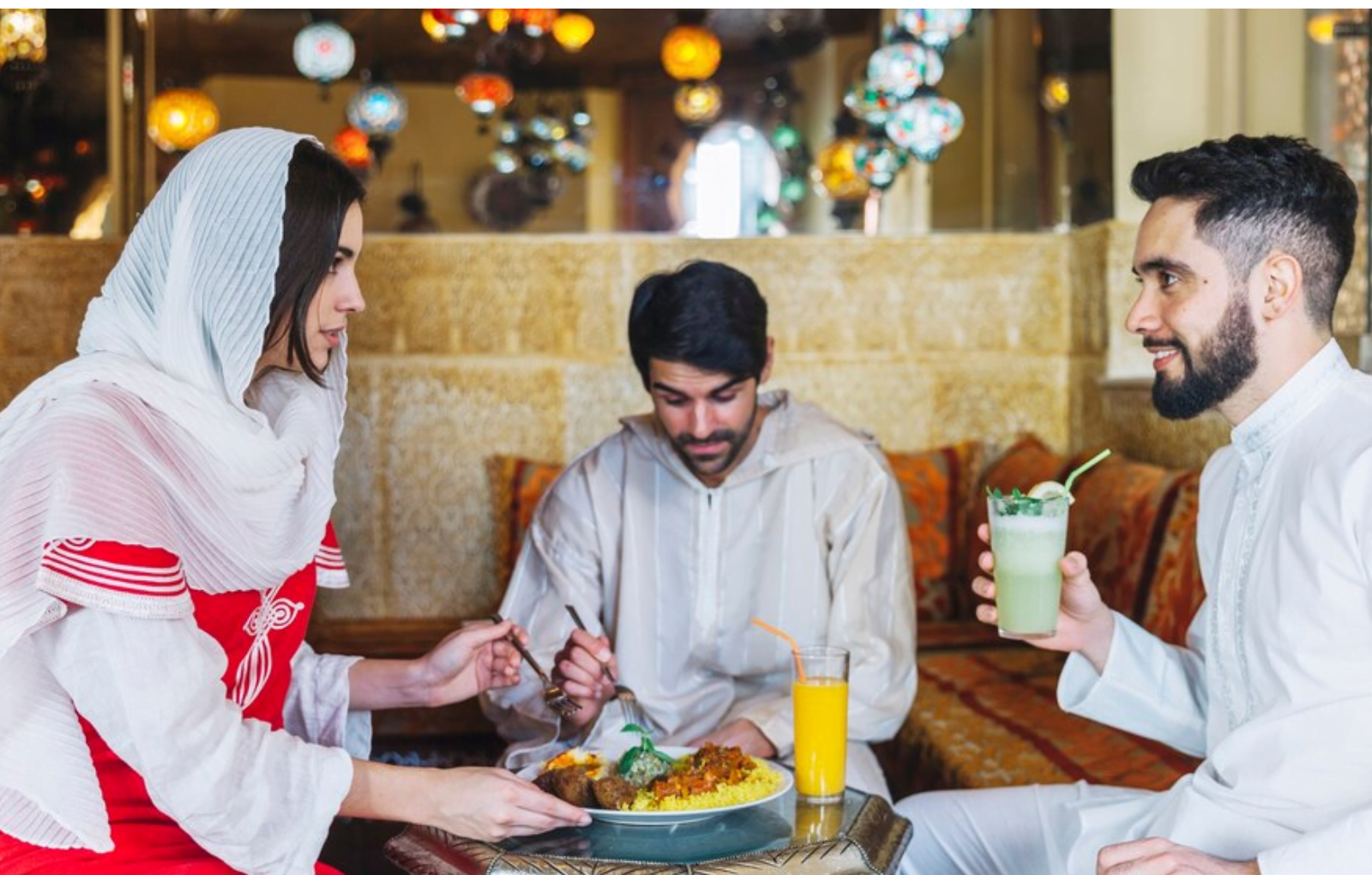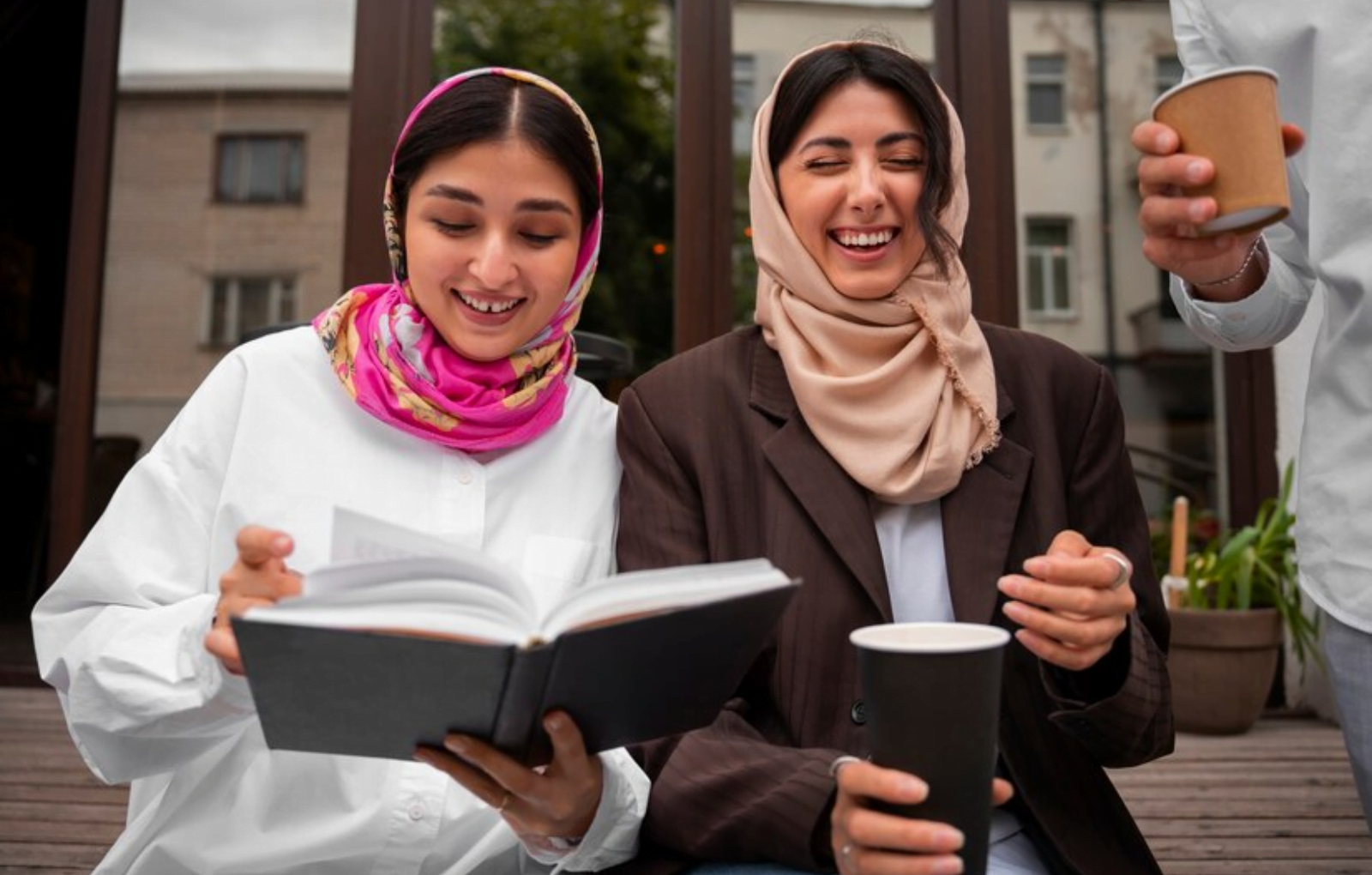
Our Blogs
Empowering your people to do more, be more. Corporate training that is interactive, engaging but most of all, effective.
May 29, 2024

A Flavorful Journey: Exploring Emirati Dishes and Language Learning
Let’s embark on a delectable journey through some iconic Emirati dishes, learning a few key phrases along the way:
- Luqaimat (لُقَيْمَات): These bite-sized sweet dumplings are a staple during Ramadan and Eid celebrations. Made from flour, milk, cardamom, and saffron, they are deep-fried and drizzled with date syrup. Fun fact: “Ya Hala” (يَاهْلا) means “You are welcome” – a perfect phrase to use when offered Luqaimat by your Emirati colleagues or friends!
- Machboos (مَجْبُوس): This flavorful dish is a national treasure, often served as a main course at family gatherings. It typically consists of meat (chicken, lamb, or camel) slow-cooked with rice, vegetables, and a blend of aromatic spices. Learning “Sahten” (صَاحِتَين) – meaning “Enjoy your meal” – is a gracious way to show appreciation when invited to share Machboos.
- Khabees (خبِيس): A hearty Emirati stew, Khabees is a slow-cooked blend of lamb or mutton with lentils, vegetables, and a rich tomato-based gravy. The word “Yalla” (يَالَلا) translates to “Let’s go!” – a fitting phrase to use when gathering everyone for a comforting bowl of Khabees.
- Dates (تمور): A symbol of hospitality in Emirati culture, dates are a ubiquitous feature on Emirati tables. They are enjoyed fresh, dried, or incorporated into sweet dishes. Did you know? “Shukran” (شُكْرًا) means “Thank you” – the perfect way to express gratitude for a generous serving of dates.
A Taste of Hospitality: The “Al Sadu” Experience
For a truly unforgettable cultural immersion, consider participating in a traditional Emirati dining experience called “Al Sadu.” This unique practice involves gathering around a large, woven carpet (sadu) spread on the floor. Low tables, often adorned with intricately embroidered cloths, are placed on the sadu, creating a comfortable and inviting atmosphere.
The host, brimming with Emirati hospitality, will ensure a delightful spread of dishes. Expect an array of appetizers like dates, olives, and sambousek (pastries filled with meat or vegetables). A steaming pot of machboos will likely take center stage, accompanied by flavorful stews and fresh salads.
But the true beauty of Al Sadu lies in the communal aspect. Food is served on large platters meant for sharing, fostering a sense of togetherness and conversation. Diners use their right hand to scoop up food with khabees, the traditional flatbread. Refusing a second helping is considered a slight to the host’s generosity, so be prepared to indulge in the bounty!
This experience goes beyond the flavors on the plate. It’s a window into Emirati culture, where hospitality and generosity are paramount. So, the next time you have the opportunity, embrace the Al Sadu experience and let Emirati food be your guide on a journey of cultural discovery.
Beyond the Plate: Cultural Immersion Through Food
Food is more than just sustenance in Emirati culture. It’s a cornerstone of social gatherings and a way to connect with family and friends. Here are a few ways to fully immerse yourself in Emirati food culture:
- Enjoy a Traditional Emirati Meal: Many restaurants in the UAE offer authentic Emirati dining experiences. Sit on the floor around a communal table and savor the flavors while observing traditional dining etiquette.
- Visit a Local Souq: Immerse yourself in the sights, sounds, and smells of a bustling Emirati souq (marketplace). Haggle for fresh spices, dates, and other local ingredients to recreate Emirati dishes at home.
- Attend a Cooking Class: Learn the secrets of Emirati cuisine by participating in a hands-on cooking class. This interactive experience allows you to connect with Emirati chefs and gain a deeper understanding of the cultural significance of food.
Learning Through Language: Spice Up Your Vocabulary
As you explore Emirati cuisine, weave in some basic Emirati vocabulary to deepen your cultural understanding. Here are a few handy phrases to get you started:
- Ya Hala! (يا هلا!): This friendly greeting translates to “You are welcome!” and is a great way to show appreciation for Emirati hospitality.
- Sahtain wa afia (صحتين وعافية): This phrase is used after a meal and translates to “May it benefit you and bring you good health!”
As the UAE Ministry of Culture and Youth puts it, “Emirati cuisine is an expression of generosity and a way to connect with others”.
- Tayyeb (طيّب): This versatile word can mean “good,” “delicious,” or “okay.” Use it to express your enjoyment of Emirati cuisine!
By incorporating these greetings and expressions into your vocabulary, you’ll not only enhance your cultural understanding but also foster stronger relationships with your Emirati colleagues, clients, or friends.
Learning and Development: Cultivating Cultural Awareness
As Learning and Development (L&D) professionals or HR leaders, we recognize the importance of fostering cultural awareness within our teams. Integrating Emirati dishes and language learning experiences can be a fun and engaging way to achieve this:
- Organize Emirati cuisine workshops: These interactive sessions can introduce participants to the flavors, ingredients, and preparation methods of traditional dishes. Learning the Arabic names of the dishes further enriches the experience.
- Host Arabic language classes: Even basic language skills can significantly enhance communication and build rapport. Consider offering introductory courses or workshops focused on business-related Arabic phrases and learn from Arabic-speaking classes.
- Facilitate cultural exchange programs: Encourage interaction and understanding by organizing events where Emirati colleagues can share their culinary traditions and language with others.
Training Booth: Your Partner in Cross-Cultural Training
At Training Booth, we go beyond just language courses. We create engaging and interactive cultural training programs that can help integrate new employees or expatriates into the UAE’s vibrant society.
Our programs use a variety of methods, including food and language learning, to create a well-rounded and immersive experience. We can tailor a program to your specific needs, ensuring that your employees or team members feel welcome, prepared, and excited to thrive in the UAE.
Contact us today to learn more about how we can tailor a program to your specific needs, using food and language learning as a springboard for a richer cultural experience!



